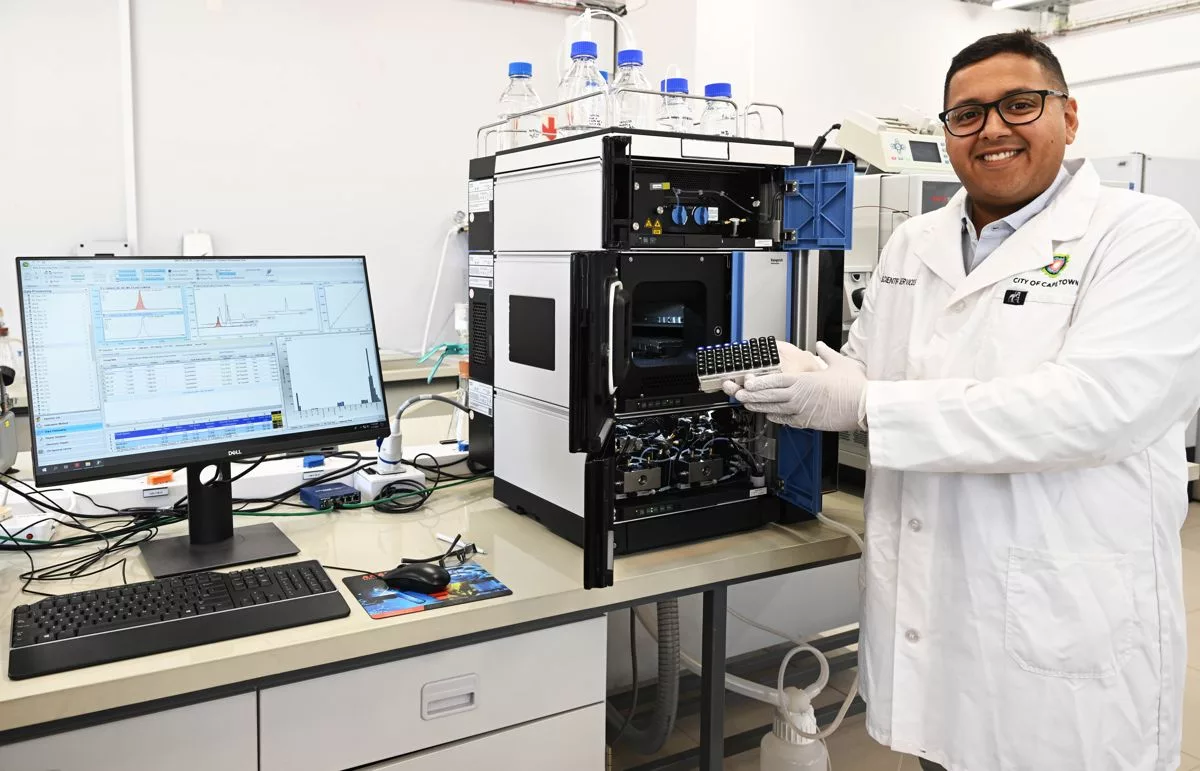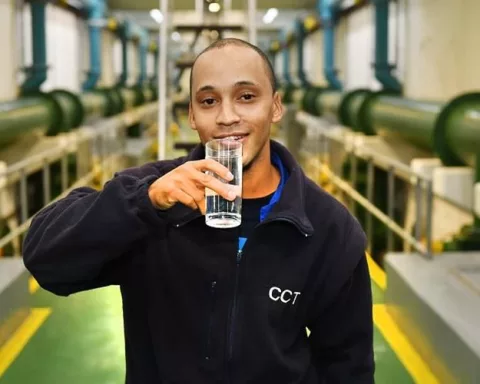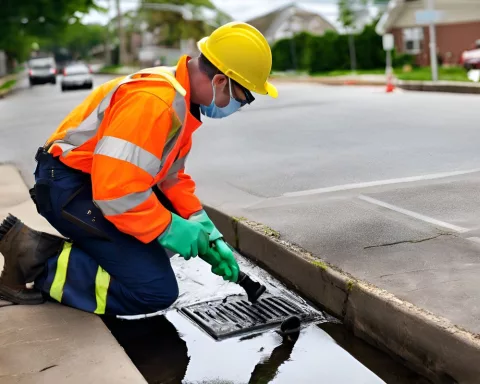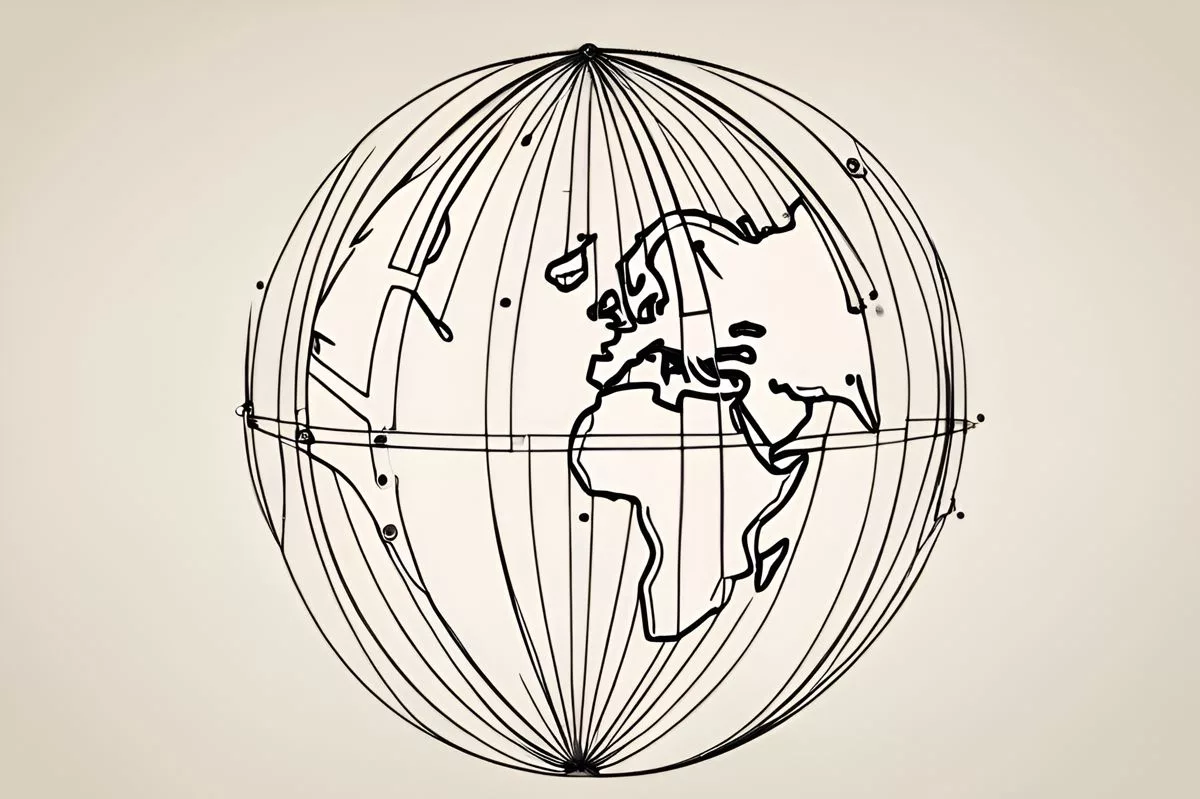Cape Town is upgrading its urban water management strategy to ensure a high-quality water supply to residents. The Scientific Services Branch has upgraded its laboratory equipment and is enhancing its Laboratory Information Management System. The city has invested R13 million in advanced laboratory tools to detect ultra-low levels of toxins in various water bodies. These upgrades represent a reinvigorated commitment to protecting water as a vital resource, using scientific and technological advancements to build a sustainable and resilient future.
How is Cape Town improving its urban water management strategy?
The City’s Water Strategy aims to ensure a high-quality water supply to residents. The Scientific Services Branch has upgraded its laboratory equipment and is enhancing its Laboratory Information Management System. The city has also invested R13 million in advanced laboratory tools such as the Liquid Chromatography Mass Spectrophotometry and Gas Chromatography Time of Flight Mass Spectrometer to detect ultra-low levels of toxins in various water bodies. These upgrades represent a reinvigorated commitment to protecting water as a vital resource.
Urban management is becoming increasingly intricate as we boldly venture into the future. To maintain the vibrancy of our cities and the health of their inhabitants, it’s crucial to harness the power of scientific and technological advancements. The City’s Water Strategy serves as a perfect example of this principle in action. This comprehensive blueprint aims to ensure an uninterrupted, high-quality water supply to city dwellers. The Scientific Services Branch, the driving force behind this strategy, has recently amplified their potential by upgrading their laboratory equipment, thereby enhancing their already impressive facilities.
Commitment to Quality Water and Air Research
Embedded within the city structure, the Scientific Services Branch stands as a symbol of scientific excellence, especially in the realm of water and air quality research. As the stewards of water and wastewater treatment procedures, their contributions are foundational to the city’s water resource management endeavors. Their team of accomplished scientists go above and beyond, employing top-tier methodologies and tools to analyze and assess water quality and ensure adherence to the highest standards.
Upgrading Laboratory Information Management System
Not content with merely updating their lab equipment, the Scientific Services Branch is also in the process of enhancing its Laboratory Information Management System. This digital overhaul will streamline the capture and representation of analytical results, making communication more effortless across various city departments. This technology-driven transformation promises an unprecedented level of efficiency and accuracy. Councillor Zahid Badroodien, the City’s Mayoral Committee Member for Water and Sanitation, is confident that this upgrade will bring about “increased water resilience“.
Investment in Advanced Laboratory Tools
The city has underlined its determination to stay ahead of the curve by allocating a substantial R13 million towards upgrading its laboratories for the 2023/2024 fiscal year. This investment has led to the introduction of two cutting-edge tools – the Liquid Chromatography Mass Spectrophotometry (LC-MS/MS) and the Gas Chromatography Time of Flight Mass Spectrometer (GCxGC-TOFMS).
The LC-MS/MS, an investment worth R7 million, is an incredibly effective instrument for the detection of ultra-low levels of toxins in various water bodies, including rivers, dams, and natural pools. These toxins often arise from algal blooms and harmful chemicals, collectively known as chemicals of emerging concern. These chemicals are found in medication, personal care products, and industrial processes, posing significant threats to human health. Hence, the capacity to pinpoint even the smallest concentrations of these chemicals is critical.
The GCxGC-TOFMS, the other recent addition, is a state-of-the-art tool used to identify extremely minuscule amounts of chemicals in water matrices. This R6 million wonder comes with an automated robotic sampler, which prepares the samples for analysis, thereby boosting efficiency. Both these tools display an impressive level of precision, capable of spotting trace amounts of chemical compounds, comparable to spotting a single drop of toxin in a body of water the size of 20 Olympic swimming pools.
Towards a Sustainable and Resilient Future
The recent upgrades within the City’s Scientific Services Branch signify more than a technological facelift; they represent a reinvigorated commitment to protecting our most vital resource – water. Through the adoption of scientific and technological advancements, the city is not just fortifying its present but also building a solid foundation for a sustainable and resilient future.
- What is Cape Town doing to improve its urban water management strategy?
-
Cape Town is upgrading its laboratory equipment and enhancing its Laboratory Information Management System to detect ultra-low levels of toxins in various water bodies. The city has invested R13 million in advanced laboratory tools, such as the Liquid Chromatography Mass Spectrophotometry and Gas Chromatography Time of Flight Mass Spectrometer.
-
What is the aim of Cape Town’s Water Strategy?
-
The aim of Cape Town’s Water Strategy is to ensure a high-quality water supply to residents and to build a sustainable and resilient future.
-
What is the Scientific Services Branch’s role in Cape Town’s water resource management endeavors?
-
The Scientific Services Branch is responsible for water and wastewater treatment procedures and contributes to the city’s water resource management endeavors.
-
What is the Laboratory Information Management System (LIMS) and why is it being enhanced?
-
The LIMS is a digital system used to capture and represent analytical results. It is being enhanced to streamline communication across various city departments and improve efficiency and accuracy.
-
What are the Liquid Chromatography Mass Spectrophotometry (LC-MS/MS) and Gas Chromatography Time of Flight Mass Spectrometer (GCxGC-TOFMS)?
-
The LC-MS/MS is a tool for detecting ultra-low levels of toxins in water bodies, while the GCxGC-TOFMS is used to identify extremely small amounts of chemicals in water matrices. Both tools are capable of detecting trace amounts of chemical compounds with impressive precision.
-
What do the recent upgrades within the Scientific Services Branch of Cape Town signify?
- The recent upgrades signify a reinvigorated commitment to protecting water as a vital resource and building a sustainable and resilient future through the adoption of scientific and technological advancements.










